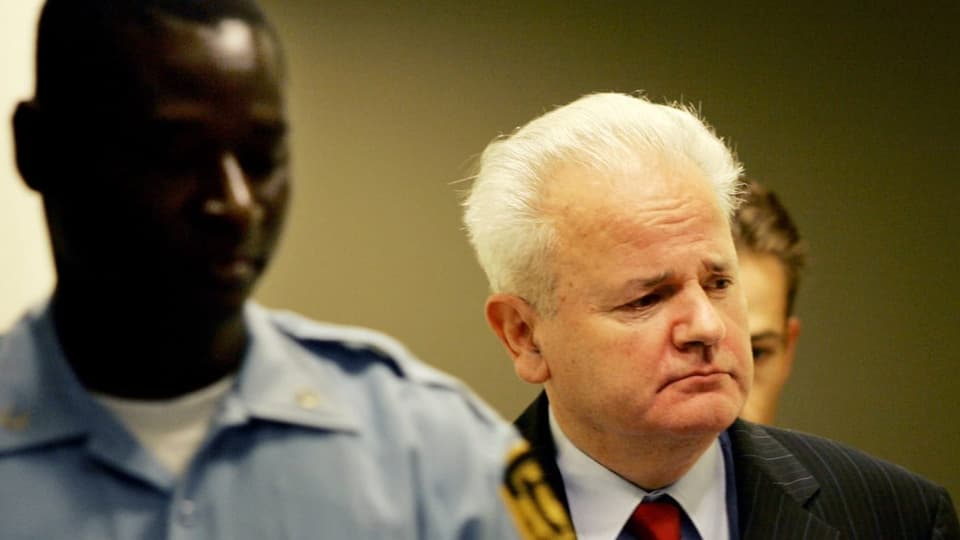The International Criminal Court (ICC) in The Hague has issued an arrest warrant for Vladimir Putin. The Russian President is responsible for war crimes in Ukraine. There is also an arrest warrant for Maria Lvova-Belova, Putin’s commissioner for children’s rights, for similar allegations. The journalist Thomas Verfuss in The Hague has been reporting on the ICC for years. He explains what the arrest warrant means for Putin.
SRF News: What exactly is the ICC accusing the two of?
Thomas Verfuss: Chief Prosecutor Karim Khan accuses Putin and Lvova-Belova of deporting hundreds of Ukrainian children from orphanages and children’s homes and putting them up for adoption in Russia. The charge is war crimes. Khan did it skillfully. Had it been charged as a crime against humanity, it would also have had to be proven that the intent was to make “little Russians” out of Ukrainian children.
With the two accused of war crimes, deportation is crucial. What’s more, you don’t have to prove that Putin did it himself. The point is that he didn’t prevent subordinates from doing it.
It was known that the ICC was investigating in Ukraine. Did you have to reckon with an arrest warrant for Putin?
Yes and no. Terribly, we have seen in the media over the past year that there have been war crimes in Ukraine. The arrest warrant has been requested by the chief prosecutor. Political considerations also come into play here.
International criminal justice requires patience.
Israeli Prime Minister Benjamin Netanyahu could also have been indicted for transferring the population out of or into occupied territory. He’s doing the same thing as Putin, just in the opposite direction. So considerations of political expediency play a role – and the hope that arrest warrants will be implemented at some point.

Legend:
When Yugoslav President Slobodan Milošević fell from power in Belgrade, he was soon put on a plane bound for The Hague. Something similar could happen to Putin after a coup, says Verfuss.
Keystone/AP/Bas Czerwinski
The geopolitical situation is currently very tense. How sensitive is such an arrest warrant in this situation?
It is now there as a symbol. A national police force always wants an arrest warrant to be executed as quickly as possible. International tribunals are more patient. Just think of the former President of Sudan, Omar al-Bashir. There has been an arrest warrant against him since 2009. He stayed in power until 2019. In 2020, Sudan’s new government promised ICC chief prosecutor Khan that Bashir would be sent to The Hague. It is now 2023. International criminal justice requires patience.
Putin is unlikely to be arrested tomorrow because of the arrest warrant.
Unless there is a coup in Russia. In 1999 it was seen that Slobodan Milosevic – then President of Yugoslavia – was indicted by the Yugoslavia Tribunal at the ICC. At that time he simply stayed in Belgrade. In 2000 he was voted out; a year later his successor put him on a plane to The Hague. Who knows what will happen tomorrow in Russia.
It is unlikely that Putin will come to The Hague voluntarily.
It is also possible that an accused President will come to The Hague voluntarily. There was that too. Namely in the case of former Kenyan President Uhuru Kenyatta. When he became president in 2013, he continued to come to The Hague voluntarily (Kenyatta was charged before the ICC in 2010 with incitement to murder, expulsion and robbery. The charges were withdrawn at the end of 2014 due to lack of evidence, editor’s note.). You can hardly count on that with Putin.
The interview was conducted by Christina Scheidegger.
